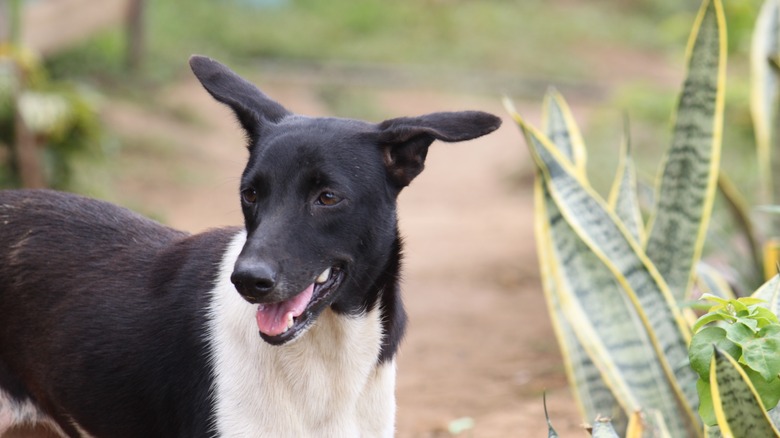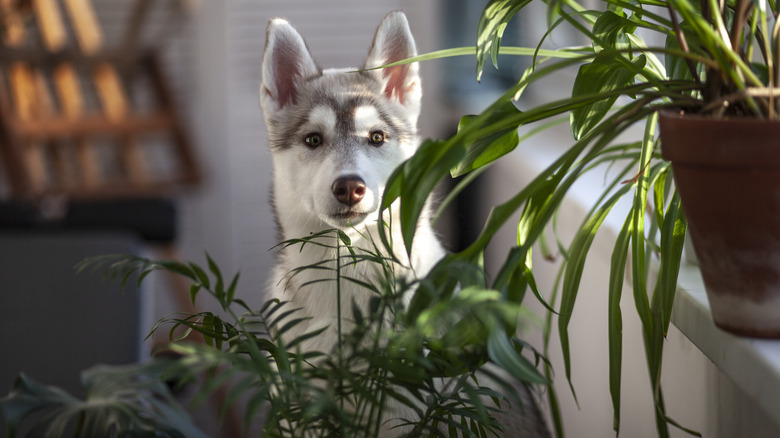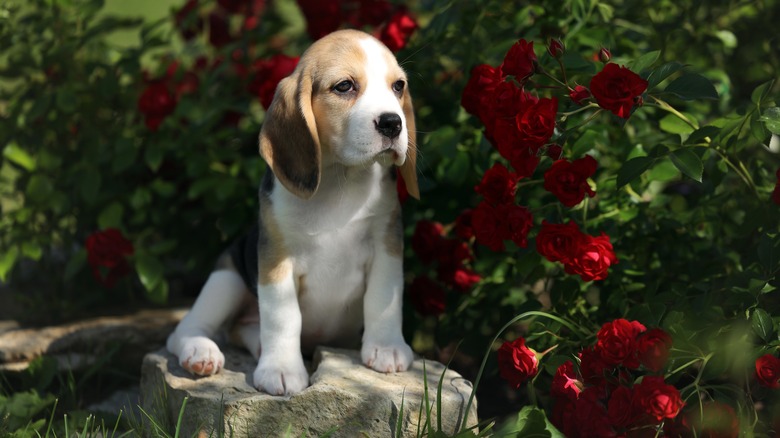Why Pet Owners Should Think Twice About Keeping Snake Plants In The House
Houseplants are a beautiful way to liven up your surroundings, but for pet parents, caution is needed when growing these leafy wonders. Today, snake plants are a popular choice amongst many home gardeners. Beloved for their unique leafy look and low-maintenance nature, snake plants might make a stunning addition to a space; however, if your pet happens to get into one, it isn't going to be so pretty.
Snake plants are toxic to both dogs and cats. Their leaves contain compounds called saponins, which are dangerous to pets if ingested.While snake plants are only considered mildly to moderately poisonous to canines and felines, eating large amounts of the plant can lead to more severe issues. If you've been thinking about getting a snake plant or already own one, it's important to know the risks they can pose to your pets (and maybe reconsider having them in your home altogether).
Signs of snake plant poisoning in pets and how to prevent it
If ingested, snake plants tend to cause gastrointestinal symptoms in both cats and dogs, with some of the most common being diarrhea and vomiting. Other symptoms can include drooling and dilated pupils. If your pet gets into a snake plant or you suspect they could have eaten some of it, monitor their symptoms and contact your vet or a pet poison control center right away.
While it's probably the best option to simply keep these plants out of the house to avoid your pet getting sick, if you just can't bear to part ways with your beloved snake plant, you will want to be extra cautious with your placement of it. To stop your dog from digging in the houseplant, keep it out of reach, such as on a shelf or hung from the ceiling. Unfortunately, cats like to hang out on high surfaces, so you either will need to be super vigilant or keep snake plants out of any rooms they have access to entirely.
Pet-safe alternatives to snake plants
Even though there are plants that are poisonous to cats and dogs, such as the snake plant, there are plenty of safe alternatives for the pet parent slash gardener. If you're looking for an option with unique foliage like the snake plant but without the potential ingestion dangers, a calathea plant, also known as a peacock plant, has unique leaf characteristics and isn't toxic to cats or dogs. Other leafy green houseplants that are safe for pets include Boston ferns, spider plants, and Chinese money plants.
If outdoor gardening is more your style, there are many flowers that won't harm your dog or cat. Consider planting roses, sunflowers, or gerbera daisies in your flower beds, as they aren't toxic to pets, so there's no need to worry about your pup or kitty getting into them. When deciding which houseplants or flowers you may want to grow, be sure to do your research to see if they pose any danger to your cherished pets.


